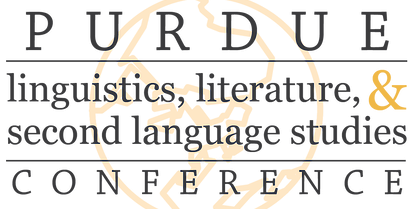Start Date
4-3-2017 12:00 AM
Description
Many have considered Linguistics a science for decades, though linguists themselves have debated the accuracy of this characterization of the study of language. These conversations about linguistics as a science reveal a discipline intent on securing scientific status, often through rigorous methodology and theoretical frameworks mirroring the traditional sciences. If successful, however, linguistics inherits the authority of modern science, which maintains an epistemically hierarchical relationship with non-scientists. By examining and representing the epistemic relationships between expertise, authority, and science, I ask us to think of all linguistics not as a socially neutral endeavor, but as perpetuating the juxtaposition of scientific and popular understanding. To practice science responsibly, I claim, linguists must justify not only their own practice, but the practice of science itself through philosophical analysis and epistemic justification that requires us to ask: Why is my way of knowing better than theirs? Answering this question will help us both research responsibly and engage in productive conversations about the discipline’s place in the larger, often skeptical, world of academia.
Included in
English Language and Literature Commons, Epistemology Commons, Other Languages, Societies, and Cultures Commons, Other Linguistics Commons, Philosophy of Science Commons
Society, Scientific Authority, and Linguistics: The Need for Epistemic Justification
Many have considered Linguistics a science for decades, though linguists themselves have debated the accuracy of this characterization of the study of language. These conversations about linguistics as a science reveal a discipline intent on securing scientific status, often through rigorous methodology and theoretical frameworks mirroring the traditional sciences. If successful, however, linguistics inherits the authority of modern science, which maintains an epistemically hierarchical relationship with non-scientists. By examining and representing the epistemic relationships between expertise, authority, and science, I ask us to think of all linguistics not as a socially neutral endeavor, but as perpetuating the juxtaposition of scientific and popular understanding. To practice science responsibly, I claim, linguists must justify not only their own practice, but the practice of science itself through philosophical analysis and epistemic justification that requires us to ask: Why is my way of knowing better than theirs? Answering this question will help us both research responsibly and engage in productive conversations about the discipline’s place in the larger, often skeptical, world of academia.


